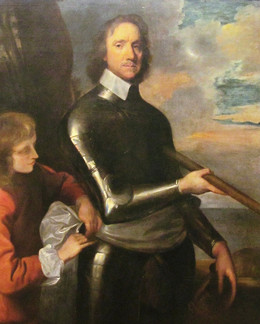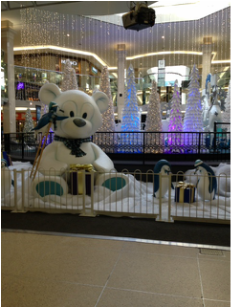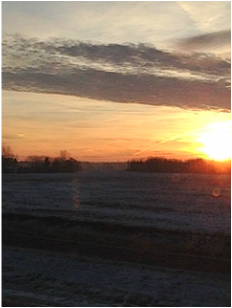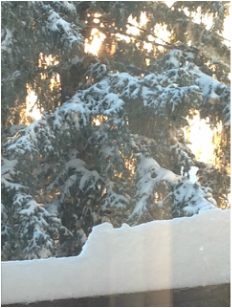 Oliver Cromwell Oliver Cromwell In the mid-seventeenth century the Lord Protector of England, Oliver Cromwell, banned Christmas. For those of you who’ve never heard of him I’ll give you a brief introduction. He was a puritan member of parliament and the leading force behind the English Civil War and the execution of Charles I. I think in modern times we would call him a dictator. Although he fought for parliament in the civil war, once the war was over he abolished parliament and proclaimed himself Lord Protector of England. Supporters of Cromwell (Yes, he has supporters even today.) say that parliament actually made Christmas illegal but I find it hard to believe that he didn’t have a hand in it. After all, he controlled the army, and had the power to dismiss parliament and take over. If he had opposed making Christmas illegal it never would have happened. Cromwell was a devoutly religious man, who believed that everyone should live their lives in strict accordance with the bible, he passed a series of laws restricting the daily life of the population. He closed inns and theatres. Most sports were banned. Swearing was punishable by a fine or imprisonment, and women were not allowed to wear makeup. Just going for a walk on Sunday, unless you were going to church, was a punishable offence. Even in seventeenth century they knew 25th December wasn’t really Christ’s birthday. To the puritan mind Christmas was a pagan celebration, and a relic of the Catholic religion in England. On 19th December 1643 an ordinance was passed encouraging people to use Christmas time as a period of reflection rather than celebration. “With the more solemn humiliation because it may call to remembrance our sins, and the sins of our forefathers who have turned this Feast, pretending the memory of Christ, into an extreme forgetfulness of him, by giving liberty to carnal and sensual delights...” Carnal and sensual delights? My Christmas celebrations are nothing like that. Anyway, within a year Christmas, Easter and Whitsun were officially banned. Anyone caught attending church on Christmas Day was arrested. As you can imagine banning Christmas was tremendously unpopular. There was rioting in several cities, and people were forced to hold their festivities in secret, which was very risky considering they would have been thrown in jail if they were caught. Cromwell died in 1658. Within two years England, once again, had a king sitting on the throne, Charles II, and Christmas was restored. Of course making Christmas illegal was doomed to failure because even though we may tire of the crass commercialism that surrounds the holiday it is part of a much a larger concept. As I wrote in my blog post Merry Christmas or Happy Winter Solstice, there is evidence that people of the Northern hemisphere have marked mid-winter for at least five thousand years, probably longer. Why? I’m not entirely sure, but I do know that in the deepest, darkest part of the year we seem to need to celebrate the light.
For me, spending time with my family, seeing the Christmas lights, and feasting on delicious food, lifts my spirits enough to keep me going until spring. It is that emotional lift that makes the season so special. So wherever you are and whatever you believe I wish you a warm, safe and happy holiday. I hope you enjoy my holiday photos 12/21/2014 07:37:36 am
Great post. Cromwell did some dreadful things in his time. Interesting post.
Marlow
12/21/2014 08:50:00 am
Thanks Margaret. Yes, he was the stuff nightmares are made of.
Mary Morgan
12/22/2014 12:52:07 am
Loved your pictures and great post! Oliver Cromwell definitely was one to inspire nightmares. Merry Christmas! :)
Marlow
12/22/2014 12:54:25 am
Thanks Mary, I agree. I'll have to do more research on him. He'd make a wonderfully awful villain. Comments are closed.
|
|
Photos from mararie, libertygrace0, Renaud Camus, David Holt London





